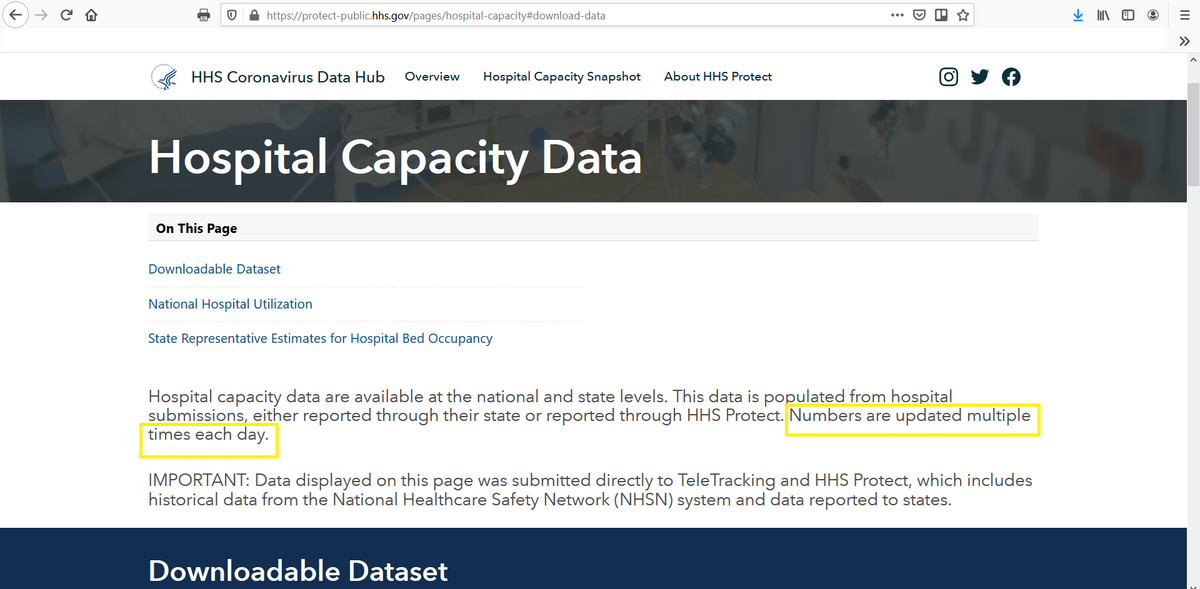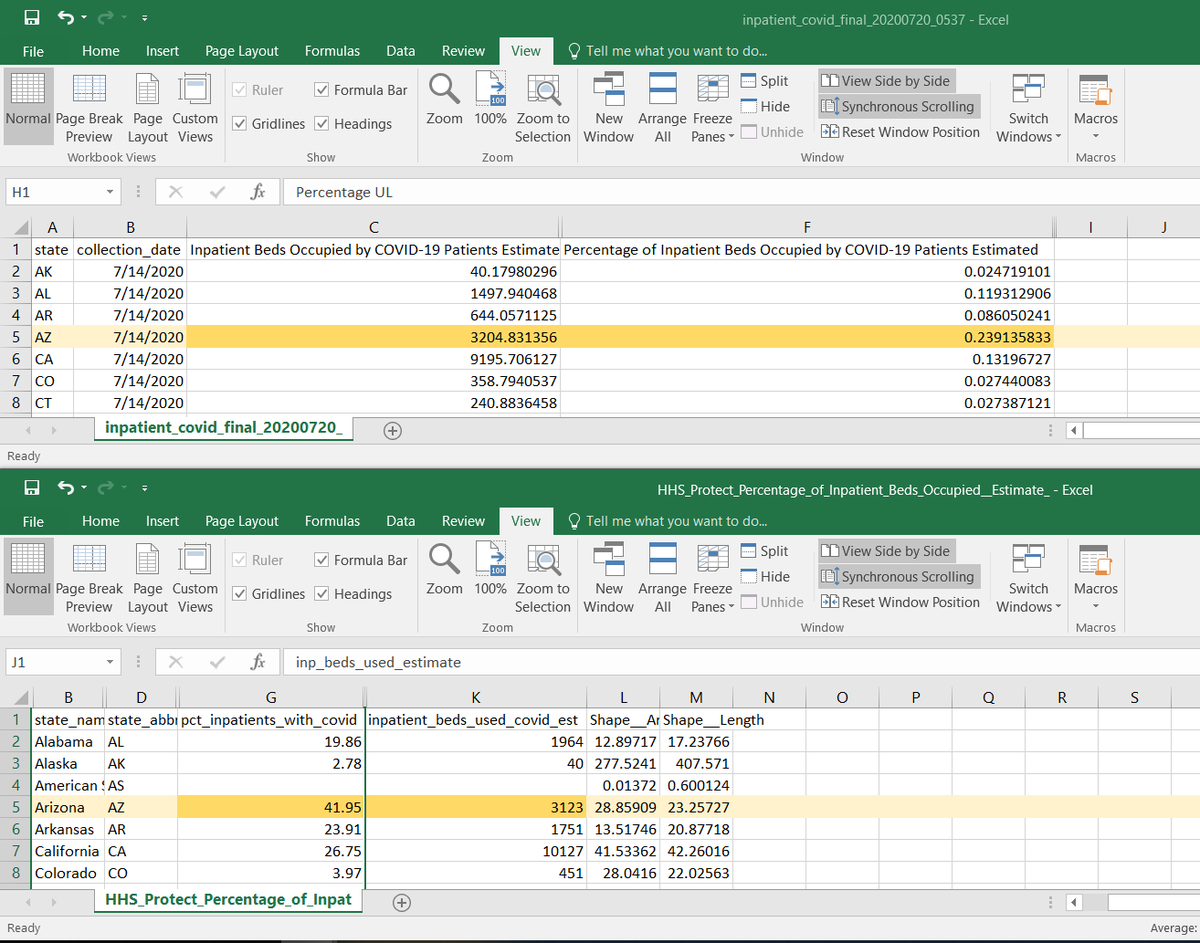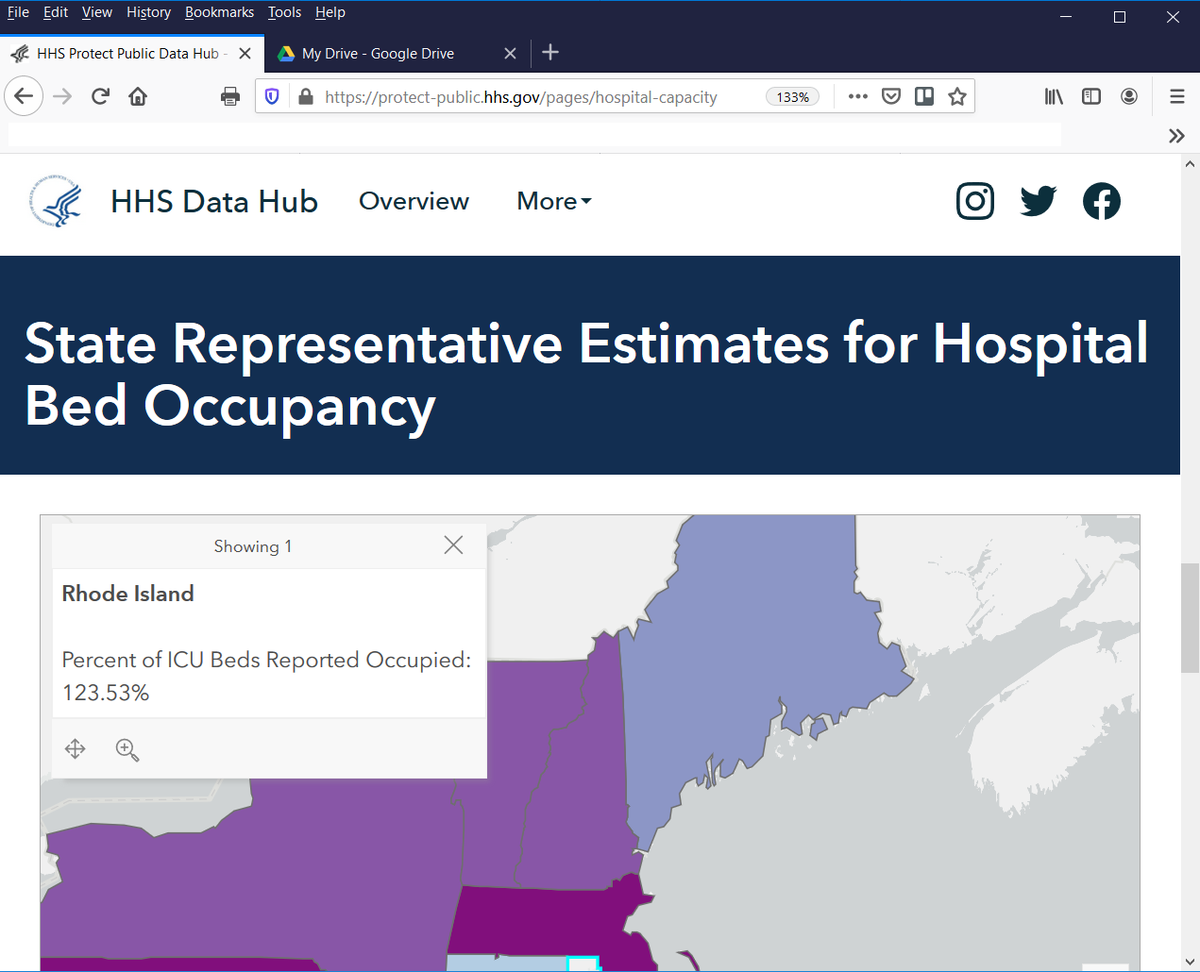The Trump administration told hospitals 2 weeks ago to bypass @CDCgov and send their COVID-19 data to @HHSGov.
Officials promised the data would be faster, more accessible to the public, and more complete.
So is it? /A THREAD https://npr.org/sections/health-shots/2020/07/31/897429054/covid-19-hospital-data-system-that-bypasses-cdc-plagued-by-delays-inaccuracies
Officials promised the data would be faster, more accessible to the public, and more complete.
So is it? /A THREAD https://npr.org/sections/health-shots/2020/07/31/897429054/covid-19-hospital-data-system-that-bypasses-cdc-plagued-by-delays-inaccuracies
TO REFRESH:
CDC had been gathering data from hospitals on the availability of beds, ventilators, PPE, etc since the pandemic began.
In mid-July, hospitals were given 2 days to switch how they report. They were told the new HHS system would be worth it. https://www.npr.org/sections/health-shots/2020/07/15/891351706/white-house-strips-cdc-of-data-collection-role-for-covid-19-hospitalizations
CDC had been gathering data from hospitals on the availability of beds, ventilators, PPE, etc since the pandemic began.
In mid-July, hospitals were given 2 days to switch how they report. They were told the new HHS system would be worth it. https://www.npr.org/sections/health-shots/2020/07/15/891351706/white-house-strips-cdc-of-data-collection-role-for-covid-19-hospitalizations
FASTER:
Under the old system @CDCgov, the public data estimates on hospital capacity were updated 3x a week.
Trump admin argued this was too slow. It's important information -- public health officials rely on the estimates to see if hospitals are at risk of being overwhelmed.
Under the old system @CDCgov, the public data estimates on hospital capacity were updated 3x a week.
Trump admin argued this was too slow. It's important information -- public health officials rely on the estimates to see if hospitals are at risk of being overwhelmed.
Initially, @HHSGov claimed they would update this data multiple times a day.
Then they quietly changed the website to "daily."
But much of the data hasn't been updated in OVER A WEEK.
And now, an HHS spokesperson tells me that it will now be updated weekly.
Then they quietly changed the website to "daily."
But much of the data hasn't been updated in OVER A WEEK.
And now, an HHS spokesperson tells me that it will now be updated weekly.
MORE COMPLETE:
@SpoxHHS told @NPR when the change was made that @CDCgov data wasn't getting data from enough hospitals - only 85% - and that "the President's COVID response requires 100 percent to report."
@SpoxHHS told @NPR when the change was made that @CDCgov data wasn't getting data from enough hospitals - only 85% - and that "the President's COVID response requires 100 percent to report."
To get more compliance, @HHSGov made clear that failing to report data to the new system might affect how much remdesivir - one of the few drugs that's shown promise in treating severe COVID-19 cases - a state gets.
Still, two weeks in, 100% of facilities are not reporting.
Still, two weeks in, 100% of facilities are not reporting.
Instead, 92% of facilities are marked as reporting.
But that's not the whole story.
A hospital counts as "reporting" if it submits just one item
in the past seven days.
And rehab and VA hospitals, which were in the CDC system, are being left out. https://www.npr.org/sections/health-shots/2020/07/31/897429054/covid-19-hospital-data-system-that-bypasses-cdc-plagued-by-delays-inaccuracies
But that's not the whole story.
A hospital counts as "reporting" if it submits just one item
in the past seven days.
And rehab and VA hospitals, which were in the CDC system, are being left out. https://www.npr.org/sections/health-shots/2020/07/31/897429054/covid-19-hospital-data-system-that-bypasses-cdc-plagued-by-delays-inaccuracies
Asked about this, HHS said:
"These hospitals are not on our list of priority hospitals that we are seeking daily information from because they treat very few, if any COVID-19 patients."
Adding: "The consistency is improving, and we are proud of the progress that has been made."
"These hospitals are not on our list of priority hospitals that we are seeking daily information from because they treat very few, if any COVID-19 patients."
Adding: "The consistency is improving, and we are proud of the progress that has been made."
Then there are the anomalies.
Take Arizona. Under the old system, in data collected by CDC, 3,205 #COVID patients in AZ occupied 24% of inpatient hospital beds.
After the switch, HHS showed 82 FEWER #COVID patients hospitalized, but the bed occupancy rate had jumped to 42%.
Take Arizona. Under the old system, in data collected by CDC, 3,205 #COVID patients in AZ occupied 24% of inpatient hospital beds.
After the switch, HHS showed 82 FEWER #COVID patients hospitalized, but the bed occupancy rate had jumped to 42%.
There are more anomalies, including Georgia and New Mexico.
In Colorado, July 30 hospitalization data from HHS showed 491 patients, but the state's daily dashboard showed 341.
And Rhode Island shows over 100% of ICU beds filled.
In Colorado, July 30 hospitalization data from HHS showed 491 patients, but the state's daily dashboard showed 341.
And Rhode Island shows over 100% of ICU beds filled.
IN CONCLUSION:
The new system made hospitals scramble to adapt, and the data is neither faster than the CDC system nor 100% complete.
PLUS there are strange anomalies in the data.
These data are important. People's lives depend on its accuracy.
The new system made hospitals scramble to adapt, and the data is neither faster than the CDC system nor 100% complete.
PLUS there are strange anomalies in the data.
These data are important. People's lives depend on its accuracy.
HHS is standing by its decision.
While some hospital assns and states have had "difficulty," HHS has worked to resolve errors, and they "are pleased with the progress we have made during this transition and the actionable data it is providing," a spokesperson told @NPR.
/END
While some hospital assns and states have had "difficulty," HHS has worked to resolve errors, and they "are pleased with the progress we have made during this transition and the actionable data it is providing," a spokesperson told @NPR.
/END
PS - all thanks and praise to co-reporter extraordinaire @selenasd

 Read on Twitter
Read on Twitter




